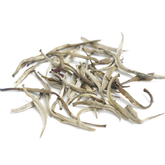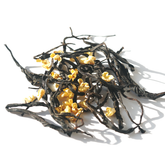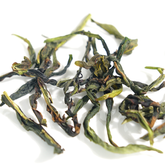Can You Drink Tea After Brushing Your Teeth?

Why does tea stain teeth?
Drinking tea does make teeth yellow, mainly due to the natural coloring components in tea such as tea polyphenols and tannins. These components are highly adhesive and can easily bind to the enamel on the surface of the teeth, gradually forming color deposits on the surface of the teeth and causing them to yellow. Several studies have shown that certain components in tea do cause tooth staining. According to dental studies, the polyphenolic compounds and tannin components in tea bind to the enamel on the surface of the teeth, causing color deposits. Black tea and black tea, in particular, are more likely to cause tooth staining due to their higher levels of tannins and pigments.
For example, a study that was published in the British Dental Journal reported that if you consume drinks containing tannins and tea polyphenols, such as tea and coffee. The surface of your teeth produced noticeable yellowish-brown deposits. While green tea as well as white tea staining is not as dramatic, there are still tea polyphenols, which can cause slight tooth staining. But there's no need to worry too much about it, as long as you keep up with your normal brushing habits, it won't have a serious effect. This problem only exists in those who smoke heavily and do not pay attention to oral hygiene.
What are the dental benefits of drinking tea?
The health care effect of tea on the oral cavity is firstly manifested in its anti-caries effect. The main reason for drinking tea to prevent caries is that tea is rich in fluorine. Fluorine makes the soluble minerals in the enamel to mineralize and less soluble crystals of remineralization, thus enhancing the resistance of the enamel to acid. In addition, fluorine enhances the firmness of enamel and has a strong bactericidal effect. An experiment in India confirmed that black tea has a significant role in preventing oral cancer. Scientists selected 15 patients for a one-year observation. These patients suffered from oral leukoplakia, a common precancerous lesion in which white patches appear on the tongue and oral mucosa. Typically, 50 percent of white patches transform into oral cancer. The final observation showed that by drinking black tea three times a day, the patients' leukoplakia was significantly relieved, and some of the white spots even disappeared. Studies have shown that the tea polyphenols contained in black tea can stop the cancerous process of oral cell DNA and help prevent oral cancer.
Summarize
Drinking tea after brushing your teeth is not recommended in order to maintain good oral health as well as not disrupting your sleep at night. This is because the natural coloring components of tea, such as tea polyphenols and tannins, can lead to yellowing of the teeth, and tea with added sugar is not conducive to cavity health. Drinking tea does lead to the risk that your teeth will turn yellow, but this is not a problem if you maintain proper brushing habits.
SEE MORE
If you have questions about selecting tea:
Learn-more-about-chinese-tea
If you have questions about the benefits of tea:
Health-benefits-of-chinese-tea
If you have questions about brewing tea:
How-to-brew-loose-leaf-tea






